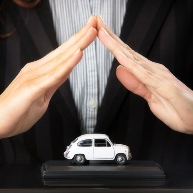All You Need to Know About Automobile Insurance
Posted August 06, 2015

Types of Coverages
A basic automobile insurance policy contains the following six types of coverage:
- Bodily injury liability and property damage liability
- Liability insurance covers the costs of damage that you may do to others, including property damage and bodily harm. It also covers legal fees, if you were the driver who caused the accident.
- Property damage liability coverage compensates to replace or repair property that you destroy (other vehicles, fences, buildings, etc.).
- Bodily injury coverage compensates for medical bills and lost wages. It also pays for pain and suffering damages up to your policy limits.
- Collision coverage
- Pays to repair your own vehicle after an accident.
- Coverage applies after deductible is met.
- Comprehensive coverage
- Pays for damages to your car that were not caused by an accident, such as fire, theft, vandalism, natural disasters, hitting an animal, etc.
- Glass coverage is also covered under this portion of the policy.
- Coverage applies after deductible is met.
- Medical Payments
- Medical payments (MedPay) coverage compensates for medical expenses for the driver and his/her passengers as a result of an accident, regardless of who was at fault.
- Personal injury protection and no-fault coverage
- Personal injury protection (PIP) coverage pays for medical expenses and lost wages for the driver and his/her passengers who are injured in an accident. PIP also covers funeral expenses, and is required in 16 states.
- No-fault coverage pays for losses, regardless of who was at-fault in the accident.
- Uninsured/underinsured motorists coverage
- Uninsured motorist (UM) coverage pays for medical bills if you are hit by a driver who does not have automobile insurance or if you are involved in a hit and run accident. This coverage is required in many states.
- Underinsured motorist (UIM) coverage takes effect when you are hit by a driver who does not have enough automobile insurance to cover all of your medical bills. In this circumstance, the at-fault driver’s insurance would pay to its maximum, and then UIM would cover the remainder up to your maximum.
- In some states, UM and UIM cover property damage.
Add-Ons
There are also several add-ons available to beef up your automobile coverage and ensure that your business vehicles are properly covered:
- Rental reimbursement coverage pays for a rental car if your vehicle is lost or stolen.
- Towing and labor coverage pays for fees as a result of breakdowns.
- Gap coverage for new vehicles pays the difference between the actual cash value of the vehicle and the remainder left on a vehicle loan, if the vehicle is totaled.
Horst Insurance understands that your company vehicles need protecting and we are here to help. Please contact your Account Executive today to learn more about our automobile insurance solutions.
This article is not intended to be exhaustive nor should any discussion or opinions be construed as legal advice. Readers should contact legal counsel or an insurance professional for appropriate advice.
